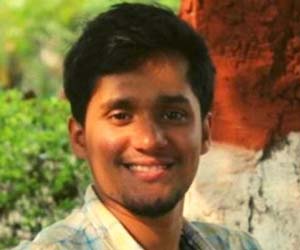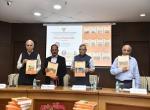On 5th July 2023, Vivekananda International Foundation (VIF) organised a Vimarsh public lecture on ‘Hindutva and Religion’ by Prof. Arvind Sharma. Prof. Sharma, formerly of the Indian Administrative Service (IAS), is the Birks Professor of Comparative Religion in the School of Religious Studies at McGill University in Montreal, Canada. He has also taught at various universities in the United States (Northeastern, Boston, Temple, Harvard), Australia (Queensland, Sydney), and India (Nalanda). He has published extensively in the fields of Indian religions and comparative religion. He is the General Editor of the Encyclopaedia of Indian Religions (Dordrecht: Springer, 2017-). Prof. Sharma was also instrumental in adopting the Universal Declaration of Human Rights by the World’s Religions, at a global conference held in Montreal, in 2016.
This lecture was the third among the lectures and discussions VIF had organised under the series called ‘Hindutva for our times’. Around a hundred years ago, in 1923, V.D Savarkar wrote a seminal work titled Hindutva: Who is a Hindu? This book gave the classical formulation for the concept of Hindutva. It would be timely to explore the underlying feature of Hindutva ideology. “Hindutva and Caste,” examined how the concept of Hindutva approaches the issue and the discourse of caste.
The discussion had Prof. Makkhan Lal, historian, previously Senior Fellow, Nehru Memorial Museum & Library (NMML) and Dr. Saumya Dey, Assistant Professor, Rishihood University as panellists. In the opening remark, Dr. Arvind Gupta, Director, VIF, mentioned that caste is a very misunderstood concept. He warned about the dangerous trends of linking caste with race, particularly in the US, where some of the states are moving to make it part of their judicial law. This way, the discourse of caste is paralleled with the issue of racism against blacks in the US. All these make the subject of caste further complex and sensitive, he added.
Prof. Sharma, in his lecture, mentioned that though the movement of Hindutva is alleged to be casteist, its foundational leaders, like Savarkar, opposed casteism. He emphasised that if privilege is the issue at the heart of casteism, in today’s world the English language creates more division and divide between people, leading to different levels of inequality. With this comparison, he opined that what we require more today is language reform. Prof. Makkhan Lal, in his lecture, explained how the word caste has become a common translation for Varna and Jati, creating confusions. He highlighted the role the British administration played in the making of the caste system as it is there in the contemporary form, which is very much different from the idea of Varna and Jati. Dr. Saumya Dey briefed about various dominant schools of thought in academia and understands the caste system. Many frameworks, like the Marxist framework, carry a hegemonic assumption on caste, a framework that dominates the discourse on caste. He mentioned how different scholarships view the issue of casteism in different ways. He opined that the response by V.D Savarkar against the issue of casteism is to be viewed as his response to the distorted version of caste, which came out to exist as a result of colonialism. The discussions were followed by a Q & A session.





Post new comment